Flossing V. Waterpiks
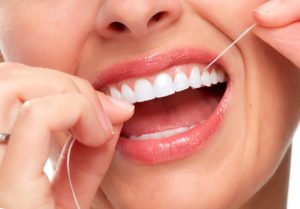 You have seen or heard about waterpiks, and may be a bit confused. You’ve always been told to floss and may be wondering if waterpiks do the same thing. Flossing and waterpiks are two different tools that serve two different purposes when it comes to maintaining your oral health. However, both serve as an excellent complement to just merely brushing. Read more
You have seen or heard about waterpiks, and may be a bit confused. You’ve always been told to floss and may be wondering if waterpiks do the same thing. Flossing and waterpiks are two different tools that serve two different purposes when it comes to maintaining your oral health. However, both serve as an excellent complement to just merely brushing. Read more
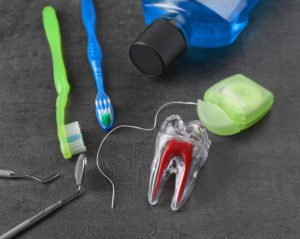

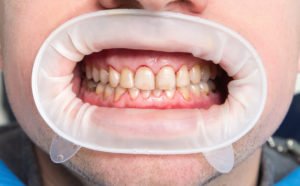 Back when American settlers first built farms and towns in the west, some areas started to develop something called the Colorado brown stain. This is where brown stains and pits would start to show up on teeth, especially among kids who grew up in the region. Scientists and doctors soon discovered that these stains were connected to a large concentration of fluoride in the drinking water, but they also noticed that people with Colorado brown stain suffered fewer and smaller cavities than the national average.
Back when American settlers first built farms and towns in the west, some areas started to develop something called the Colorado brown stain. This is where brown stains and pits would start to show up on teeth, especially among kids who grew up in the region. Scientists and doctors soon discovered that these stains were connected to a large concentration of fluoride in the drinking water, but they also noticed that people with Colorado brown stain suffered fewer and smaller cavities than the national average. 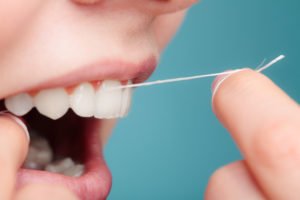 One of the biggest reasons why many people don’t floss, including both children and adults, is because of the pain that comes afterward. After running a piece of waxed string between their teeth, most people experience swelling and
One of the biggest reasons why many people don’t floss, including both children and adults, is because of the pain that comes afterward. After running a piece of waxed string between their teeth, most people experience swelling and 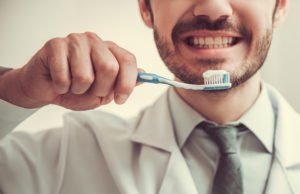 Brushing your teeth without any toothpaste can help your mouth a surprising amount. The brushing action alone scrapes away plaque and the bacteria that creates it loosens food particles and helps strengthen your gums by rubbing them. However, modern toothpaste has several ingredients that improve the effects of brushing your teeth, such as the following:
Brushing your teeth without any toothpaste can help your mouth a surprising amount. The brushing action alone scrapes away plaque and the bacteria that creates it loosens food particles and helps strengthen your gums by rubbing them. However, modern toothpaste has several ingredients that improve the effects of brushing your teeth, such as the following:  If you visit your dentist regularly, you shouldn’t have to worry about cavity symptoms. When they’re small, cavities don’t cause many
If you visit your dentist regularly, you shouldn’t have to worry about cavity symptoms. When they’re small, cavities don’t cause many 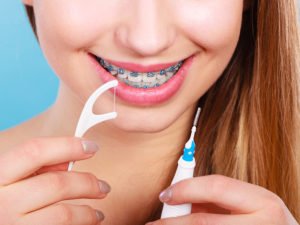 Most people think of a pain in their gums when they think of flossing, but that pain goes away after you start flossing regularly. On the other hand, there is another pain that never goes away: the pain of wrapping the floss around your finger. Between that and the way floss gets slippery with saliva, it can be inconvenient to use. But that’s not an excuse any more thanks to all the flossing tools you can find at any drug store.
Most people think of a pain in their gums when they think of flossing, but that pain goes away after you start flossing regularly. On the other hand, there is another pain that never goes away: the pain of wrapping the floss around your finger. Between that and the way floss gets slippery with saliva, it can be inconvenient to use. But that’s not an excuse any more thanks to all the flossing tools you can find at any drug store. 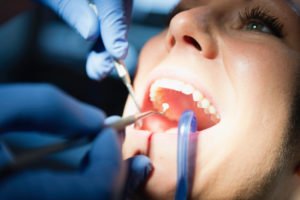 Nobody loves to go to the dentist for a tooth filling. A regular cleaning is bad enough with the metal hooks scraping the tartar off your teeth and a dentist poking around in every corner of your mouth. Cavity fillings add to this by drilling out your teeth and sometimes causing some serious pain in the process, plus the anesthetic makes your lips and tongue feel fat for a while afterward.
Nobody loves to go to the dentist for a tooth filling. A regular cleaning is bad enough with the metal hooks scraping the tartar off your teeth and a dentist poking around in every corner of your mouth. Cavity fillings add to this by drilling out your teeth and sometimes causing some serious pain in the process, plus the anesthetic makes your lips and tongue feel fat for a while afterward.  There are some things that you just shouldn’t put in your mouth, and metal is near the top of the list. Aside from having no nutritional value, metal is hard enough to damage your tooth enamel, and if you bite down hard enough you can chip or break your teeth entirely. But if all that is true, then why do dentists and dental hygienists get to scrape away at your teeth with metal probes and picks?
There are some things that you just shouldn’t put in your mouth, and metal is near the top of the list. Aside from having no nutritional value, metal is hard enough to damage your tooth enamel, and if you bite down hard enough you can chip or break your teeth entirely. But if all that is true, then why do dentists and dental hygienists get to scrape away at your teeth with metal probes and picks?